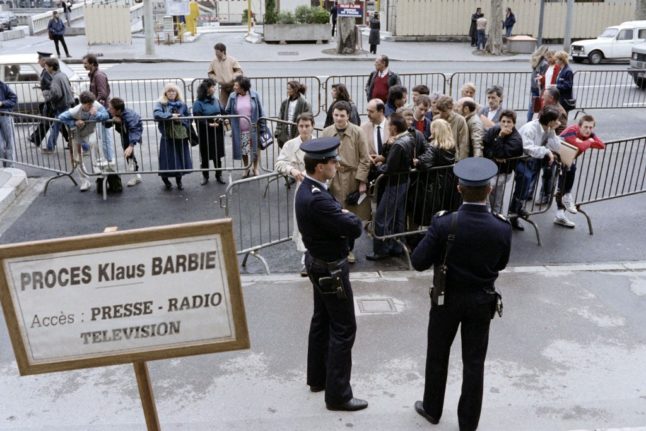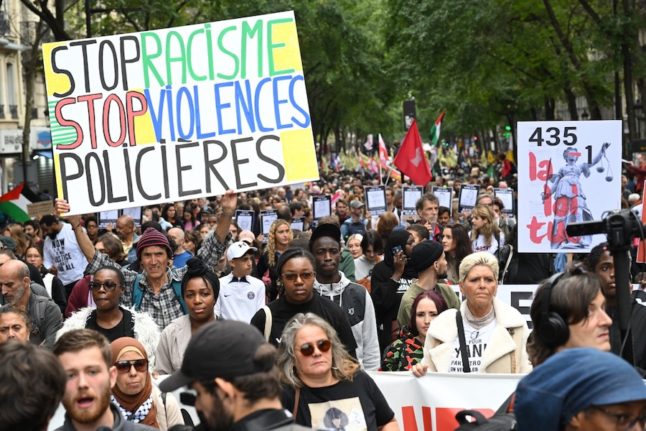After more than three decades of discussion, the city council finally voted on December 15th in favour of constructing a Holocaust memorial in the city centre.
Lyon’s mayor, Gregory Doucet, tweeted that Lyon remembers the victims of the Holocaust, and that the city council had voted unanimously to support the building of a memorial at the Place Carnot.
#Lyon se souvient des victimes de l'Holocauste. Voté à l'unanimité en ce jour de #CMlyon, un Mémorial de la Shoah sera érigé place Carnot.
Le soutien de la Ville à l’édification du monument constitue l’expression d’une solidarité collective et républicaine. pic.twitter.com/VyXHLKD1qE— Grégory Doucet (@Gregorydoucet) December 15, 2022
The city, known for having been an important location for the French resistance and not far from the line of demarcation between German-Occupied France, and the Free Zone, already honours victims of the Holocaust with several plaques throughout the city.
There is also a memorial, which was recently inaugurated in September 2022, located in La Mouche Jewish cemetery in the city’s 7th arrondissement that recognises and lists the names of the Jewish people who were deported from the Auvergne-Rhône-Alpes region.
La Mouche cemetery is the oldest Jewish burial ground in the eastern city, and prior to the installation of its memorial, Lyon was “the only major city in France that did not have a memorial for Jews murdered during the war,” Alain Sebban, president of the Regional Jewish Consortium told France Régions in September.
Yet as of December 2022, there was still no large-scale Holocaust memorial in the city centre, “an oversight” that would be rectified by the memorial that the city council voted to build.
During World War II, many Jewish inhabitants of Lyon were deported to concentration camps, including the prominent French Holocaust survivor, Claude Bloch, who was from Lyon. Bloch and his mother were deported to Drancy and Auschwitz respectively, though his mother never returned.
Convicted German war-criminal Klaus Barbie, known as the “Butcher of Lyon“, was personally responsible for the torture and roundups of many Jewish people living in Lyon.
The Rue Saint-Catherine Roundup saw 84 people arrested and sent to concentration camps in a single day. Barbie was also known to have tortured and held captive members of the French resistance, such as Jean Moulin.
Previous efforts had been made to build a memorial Lyon in the past three decades – most recently, in 2019, the former Mayor Gerard Colomb presented a plan to build a memorial that would specifically recognise the six million Jewish people who were killed in the Holocaust.
Almost three years later, on December 15th, 2022 the city council agreed to give the project the additional €400,000 in budget it required to complete the project. The city agreed to provide a grant for €75,000, alongside the €150,000 provided by the region. The council agreed that private partners and donations would provide the remaining funds.
A competition to design the memorial will be launched in 2023, with the goal being to create a “significant work of art” of a “certain size” that would hold the eye “of the passer-by” and “challenge them.”



 Please whitelist us to continue reading.
Please whitelist us to continue reading.
Member comments